A Year on the Hot Seat
One of my proudest achievements is being elected as the Faculty of Science and Engineering Officer in the 2023–24 LEAD MCR elections at The University of Manchester. This role gave me a unique platform to represent students, influence key decisions, and help shape the student experience, all while working full-time in a highly professional environment.
It has been a rewarding and challenging journey that is difficult to summarise. Below, I have highlighted some of the key projects and initiatives I have led or contributed to, offering a glimpse into the scope and impact of this role.

FUN FACT!
I wasn’t involved in student representation during my first year, but by some unexpected twist of fate, I found myself in one of the most representative roles on campus — and, to my surprise, I absolutely loved it.
Background
When I first arrived at university, the concept of a Students’ Union and student representation was unfamiliar to me, largely due to cultural differences—these systems don’t exist in educational settings back home. During my first year, there were things I wanted to change, but I never felt confident enough to take action. I soon realized that many other students felt the same way, unsure or hesitant to step forward and be a voice for themselves and others—a reality that is often overlooked.
Objective
Recognizing this gap, I aimed to raise awareness about the role of the Students’ Union and the importance of student representation. My goal was to improve engagement, especially among international students, and help foster a stronger sense of belonging within the university community.
Actions Taken
Panelist Contribution: Participated in the Student Voice plenary session to discuss barriers to representation.
Forum Organization: Hosted forums for students to voice concerns, promoting transparency and engagement.
Recognizing Efforts: Organized an awards night to celebrate staff and students who championed the student voice.
Advocacy in Meetings: Advocated for student needs in faculty meetings, pushing for more representation in decision-making.
Recruitment Efforts: Conducted outreach to recruit academic representatives, increasing student involvement and diversity.
Presentations: Delivered talks on the Students’ Union’s role to inspire greater student engagement.
Results
Mid-Semester Survey Implementation: As a direct result of feedback gathered from the forums, a new mid-semester survey was rolled out. This allows students to provide feedback before the semester concludes, enabling timely changes to better support their needs.
Increased Transparency: Keeping the academic representative community informed fostered a greater sense of involvement and ownership. Representatives recognized the impact of their feedback, motivating continued engagement and support for university initiatives.
Stronger Representation: Emphasizing meaningful dialogue and transparency enhanced the effectiveness of student representation, contributing to a more responsive and engaged academic community.
Rising Interest: We observed an increase in applications for student representative positions, indicating that more students are now interested in stepping up and being the voice for their peers.
Takeaways
This initiative emphasized the importance of effective communication and representation in enhancing the student experience. It highlighted the unique challenges faced by international students and the value of proactive engagement in fostering a supportive university community.
Background
As someone deeply interested in employability and student development, I became aware of a significant gap in placement opportunities within the Department of Mechanical Engineering at The University of Manchester. While MEng (Master’s) students had access to placement year pathways, BEng (Bachelor’s) students did not. This disparity limited access to valuable industry experience and created an uneven academic journey, particularly for international students.
Recognising the importance of equal opportunity, I set out to explore how placement years could be extended to BEng students in the future.
Objective
To assess the feasibility of introducing placement years for BEng students and advocate for a more inclusive and equitable approach to professional development within the department.
Actions Taken
To build a well-informed case, I undertook the following:
• Stakeholder Engagement
Held discussions with key academic and administrative staff to understand the rationale behind the current structure and explore potential alternatives.
• Comparative Research
Investigated placement year models at other Russell Group universities to identify best practices and relevant benchmarks.
• Student Consultation
Conducted surveys across departments to gather feedback from BEng students, which revealed strong interest in placement opportunities.
• External Collaboration
Initiated a virtual discussion with the Institution of Mechanical Engineers (IMECHE) to better understand accreditation-related challenges.
• Proposal Development
Compiled findings into a formal proposal and presented it to the faculty’s senior leadership team. The proposal was well received and initiated further dialogue on the topic.
Outcomes
• Increased Transparency
Helped clarify the structural and regulatory constraints surrounding placement year availability.
• Documented Student Demand
Provided concrete evidence of student interest, supporting future policy discussions and planning.
Key Takeaways
This experience reinforced the importance of stakeholder engagement, evidence-based advocacy, and persistence in navigating institutional change. It also highlighted the complexities involved in policy development and the value of student-led initiatives in shaping a more inclusive academic environment.
Background
The university identified a recurring challenge in assessment and feedback within the National Student Survey (NSS), revealing low student satisfaction across all three faculties. The NSS, a critical measure of overall student experience, highlighted concerns regarding the timeliness and effectiveness of feedback.
Objective
To address these challenges from a student perspective, I collaborated with two other education officers to create a comprehensive paper outlining key areas for improvement. Our recommendations were based on insights gathered from surveys and consultations with students from all faculties.
Actions Taken
Data Gathering: We collected and analyzed student feedback through surveys and consultations, identifying key concerns about assessment and feedback.
Identifying Challenges: Through our consultations, we pinpointed two major issues:
Inconsistent group work experiences across departments.
Delayed feedback turnaround: Students noted that feedback was often not timely.
Presentation to Leadership: We presented our findings to the senior leadership team and engaged with key stakeholders to delve deeper into the identified issues.
Dialogue and Review: Our efforts initiated meaningful discussions around the accessibility of group work. We conducted an in-depth review of group work practices across the university, held additional consultation sessions to gather student insights, and presented our findings to the Group Work Working Group.
Outcome
The senior leadership team responded positively to our recommendations. As a direct result of our advocacy, a 28-day feedback turnaround policy was introduced. Additionally, the insights on group work practices are being used to shape future improvements, with ongoing efforts to implement best practices university-wide.
Takeaway
This experience underscored the importance of collaborative problem-solving and engaging with stakeholders. It demonstrated how thorough research and teamwork can drive meaningful change.
CLE (Central Learning Environment) Pedagogy Group
As co-chair of the CLE Pedagogical Group, I partnered with a senior university member to assess and improve educational practices. Our focus was on pinpointing critical IT system gaps in preparation for the 2025 transition. This role honed my skills in navigating complex decision-making, enhanced my collaboration with senior stakeholders, and refined my ability to drive consensus. I gained valuable insights into educational technology and institutional planning, strengthening my leadership in large-scale initiatives and contributing to organizational growth.
University AI Working Group
In the University AI Working Group, I played a key role in discussions on integrating AI into educational practices, aiming to position the university as a leader in this field. I provided student perspectives on AI’s impact and recommended changes to empower students in this emerging sector. This experience deepened my understanding of the cultural shifts required for both students and staff to adapt to innovative technologies.
Trustee (Union)
Serving as a trustee of the Students’ Union was a pivotal experience. This role, integral to the union’s governance, involved more than just reviewing papers—it required ensuring the union acted in students’ best interests. I developed strategic planning skills, assessed long-term goals, and anticipated risks. My leadership and communication abilities were further enhanced through high-level decision-making and collaboration with board members, stakeholders, and executives.
Trading and Sustainability Committee (Union)
As a member of the Trading and Sustainability Board, I played a key role in discussions regarding the union’s financial health and long-term sustainability. Our focus was on ensuring the union remained at the forefront of financial and environmental responsibility. This experience enriched my understanding of financial management and strategic planning, honing my decision-making skills. I learned to balance immediate financial needs with sustainable growth strategies, contributing to the union’s long-term stability.
The NETSPOSURE Effect
“Netsposure” is a term I coined, blending “Networking” and “Exposure”—the two foundational pillars of this enriching role. I’ve had the privilege of collaborating with some of the most experienced professionals and inspiring individuals, both within the university and beyond, while engaging in unique and exclusive activities tied to this role. Each interaction has broadened my perspective, enhanced my skills, and offered valuable lessons. Below are some pictures from these memorable experiences.
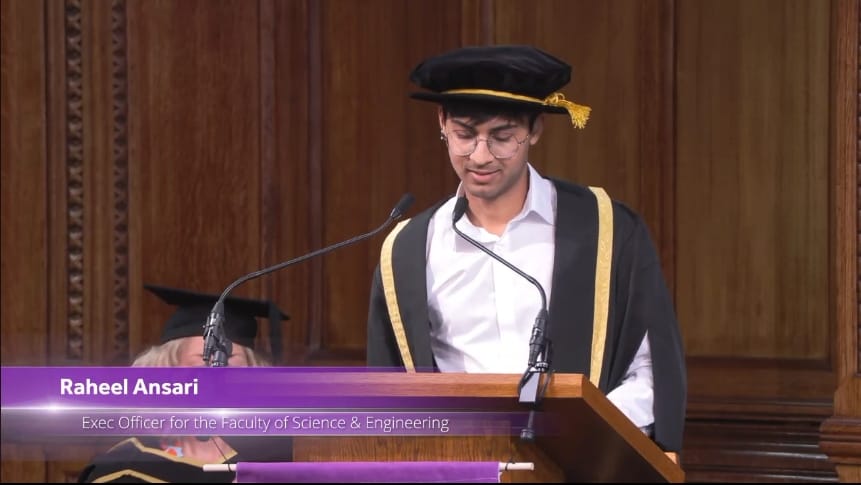
Graduation Speeches
One of my favorite perks! I had the privilege of delivering nine graduation speeches alongside senior university staff. Imagine standing in front of a packed hall, trying to sound both inspirational and relateable as a freshie. Terrifying at first, but by the end, I was almost loving the adrenaline rush!
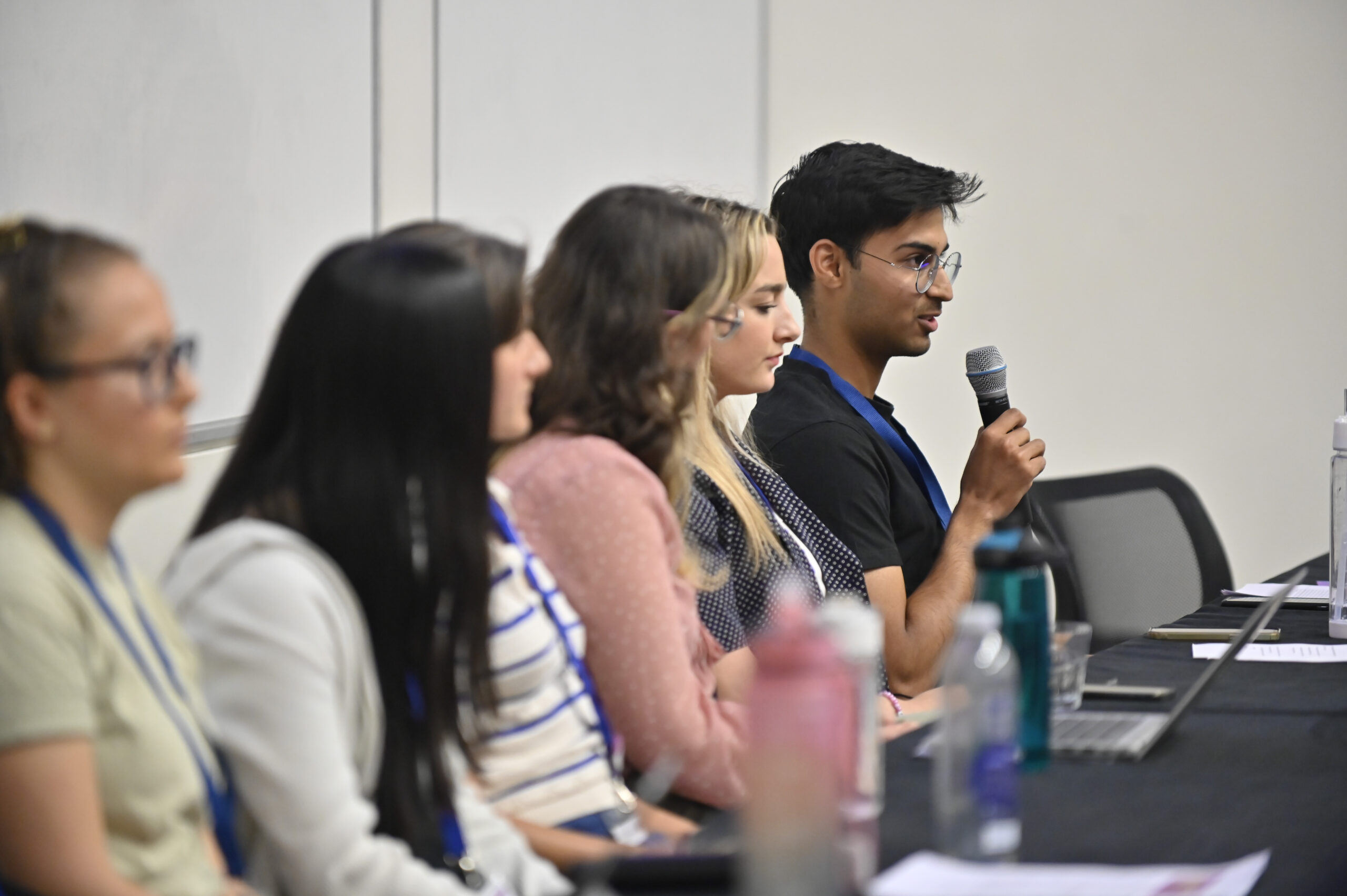
Panel Discussions
Sitting on panels and delivering your point of view in front of an audience isn’t everyone’s cup of tea. It wasn’t mine either—at first. But I realized it’s the best way to get your voice heard and find common ground with others. Definitely a skill I’m glad I picked up!
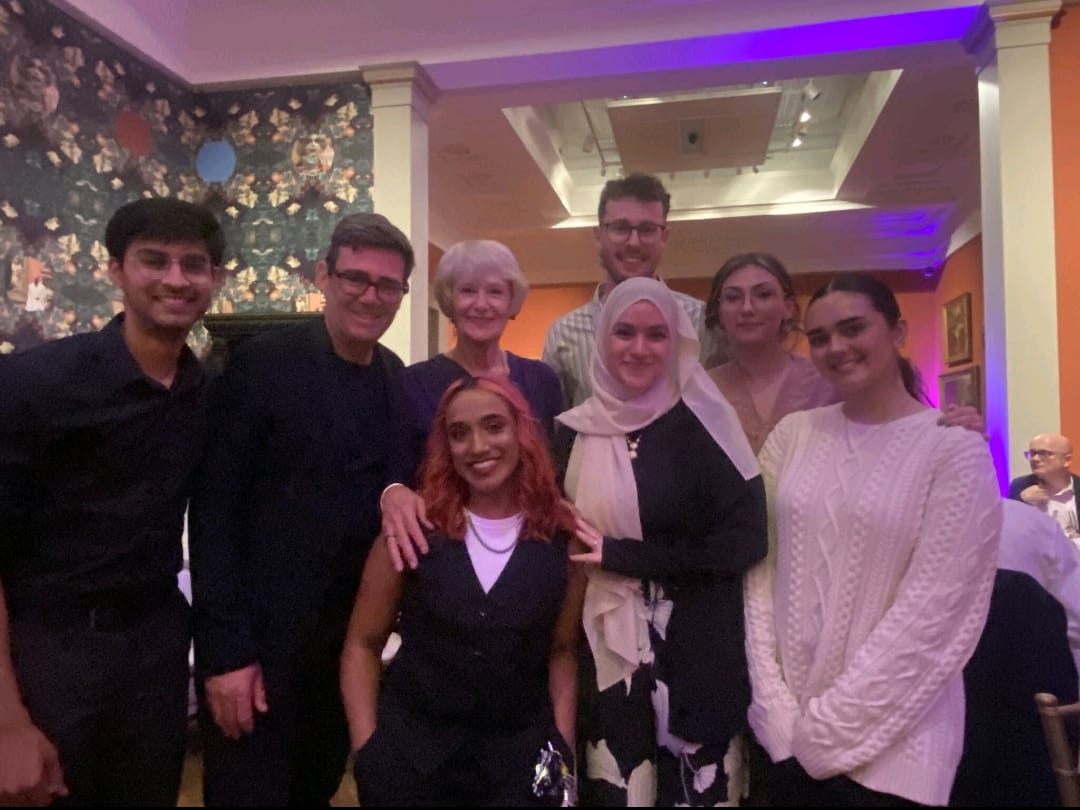
Mayor and the Team
While I didn’t get to work directly with the Mayor of Manchester, my fellow officers did, especially through the Greater Manchester Student Partnership (GMSP). They worked closely to tackle student-related issues within the city. But the cool part? I still got to meet him at a Civic Dinner! It’s not every day you get to casually chat with someone who’s running the city.
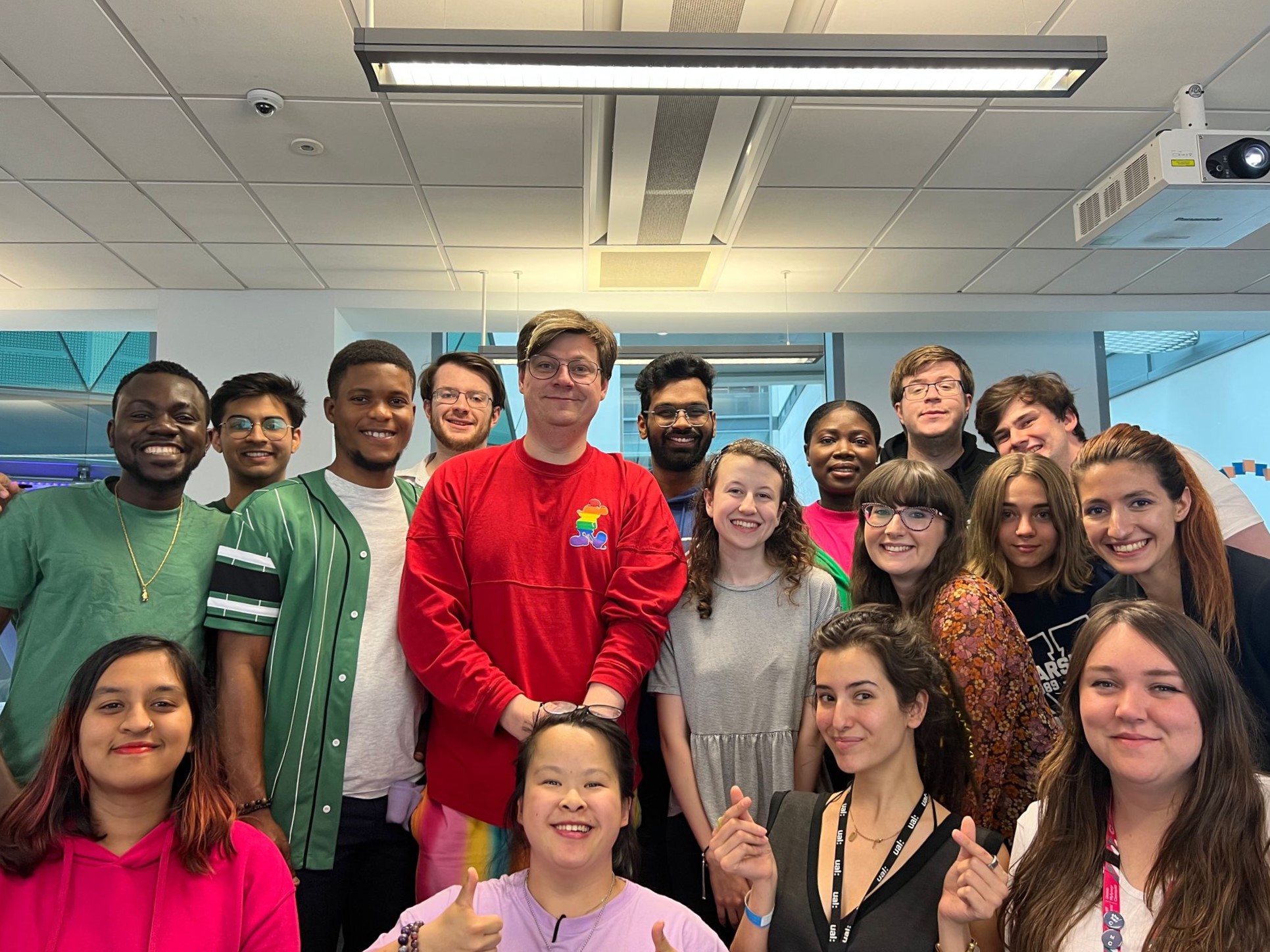
NUS Conferences
One of the perks of the job was attending various NUS (National Union of Students) conferences. These events are like a massive brainstorming session with student officers from around the country—an opportunity to share ideas, find common ground, and work on cross-university collaborations.
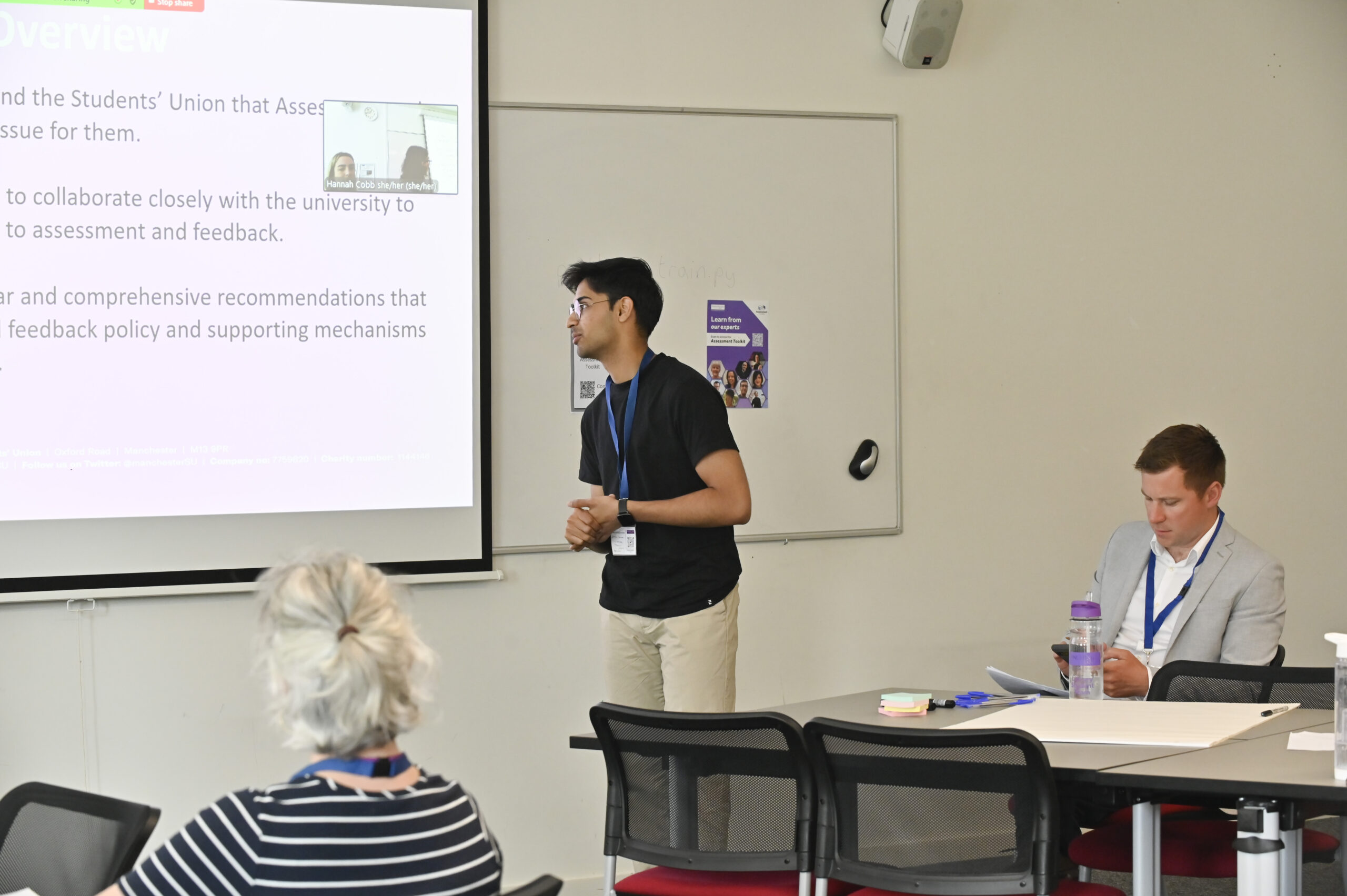
Presenting at Conferences
This is where the real spotlight came in. Whether it was a conference or an important meeting, I was often presenting topics I was passionate about alongside fellow officers. It was challenging, but I quickly learned that being in the spotlight also means you get to lead the conversation—a great learning experience!
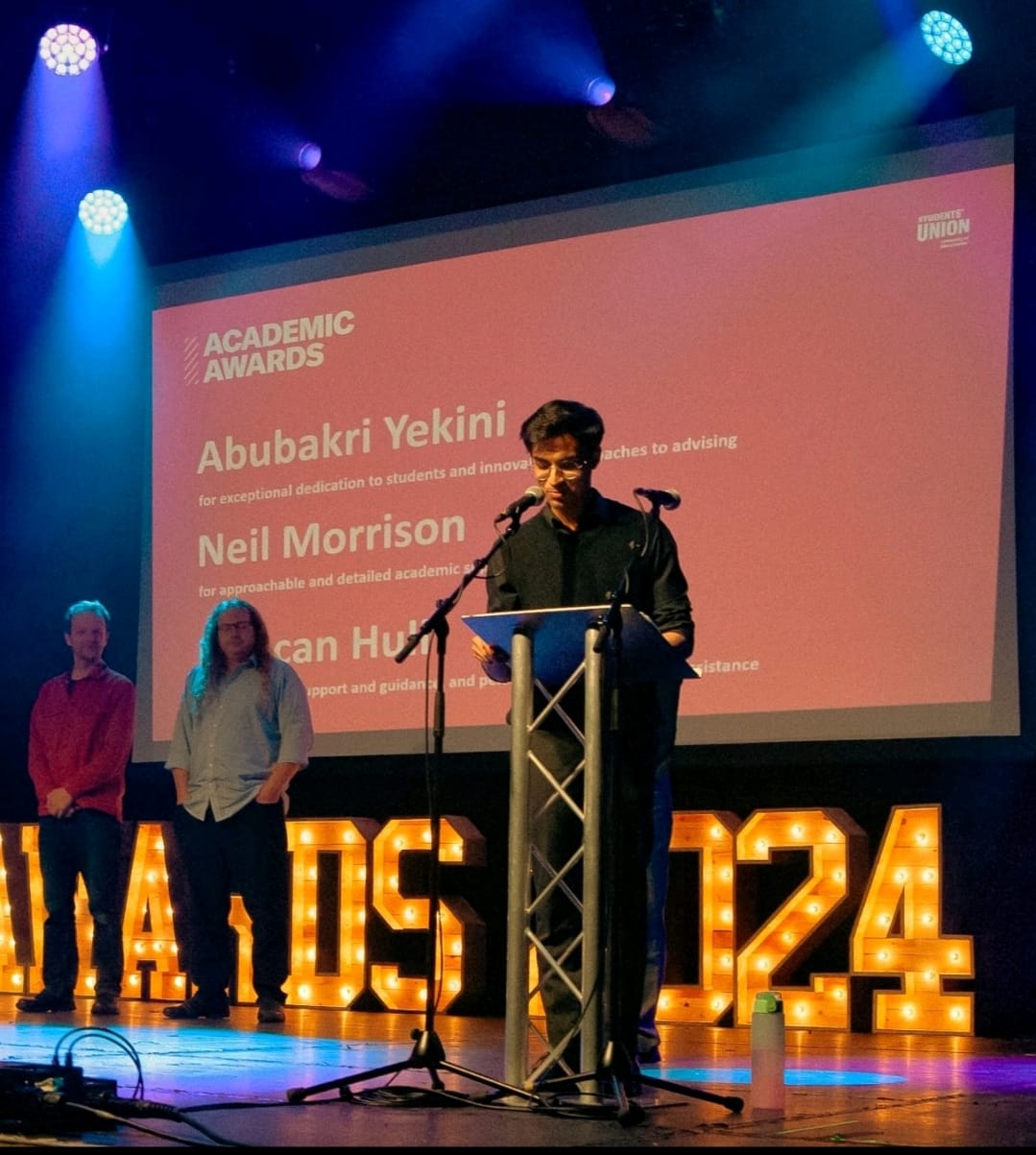
Hosting awards night
Hosting events like awards nights and forums was another exciting (and nerve-wracking) part of the role. The pre-planning and rehearsals? Always a breeze. But the real challenge? Walking on stage with a racing heartbeat and hoping to get through the night without messing up someone’s name in front of a crowd!
What Next?
And of course, there’s more to me than just engineering and work. Click the ‘My Shelf’ dialog box to explore the fun side of things.